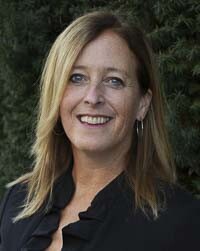
Elizabeth New (Hovde) points out that many workers don’t benefit at all from the paid family and medical leave fund and are just going without wages they could be using for other life needs
Elizabeth New (Hovde)
Washington Policy Center
“The paid family and medical leave (PFML) premium rate will increase to 0.92% in 2025,” Emily Makings with the Washington Research Council reported Wednesday afternoon. “The Employment Security Department (ESD) made the announcement during today’s meeting of the PFML Advisory Committee.”

The 2025 rate is significantly higher than the rate that accompanied the program when it first began in 2019 at .40%. The fund is not paying its way as Washingtonians were sold.
In addition to a more than doubling of the tax rate, PFML has already received a general fund bailout of $200 million. Short-term deficits in the PFML account beginning early in 2025 and continuing intermittently through 2026 could require another bailout. Lawmakers have also questioned if they set the rate too low for this “if you build it they will come” taxpayer-financed benefit.
Employers and employees pay into this fund that allows workers taxpayer-paid time off with new babies or time off for people with medical needs of their own or others. Employers pay 28.57% of the total PFML tax and employees pay 71.43%. In 2025, employers will pay 28.48% of the premium and employees will pay 71.52%, writes Makings.
Many workers, of course, don’t benefit at all from this fund and are just going without wages they could be using for other life needs. My research has also shown that PFML is no safety net. Middle- and upper-income wage earners use the program more than those with lower incomes. In fact, people making $60 or more an hour used the fund about twice as much as the lowest wage-earners.
Elizabeth New (Hovde) is a policy analyst and the director of the Centers for Health Care and Worker Rights at the Washington Policy Center. She is a Clark County resident.
Also read:
- Letter: ‘It’s said sarcasm is the lowest form of wit’Amboy resident Thomas Schenk criticizes Olympia’s use of “emergency clauses” and other legislative tactics that limit public participation.
- Letter: ‘We’re going to give them some money and a plane ticket, and then we’re going to work with them’Camas resident Anna Miller supports a new structured self-deportation policy, calling it a balanced approach to immigration and economic needs.
- Opinion: What the 2025 legislature tells us about why Washington’s government keeps failingTodd Myers of the Washington Policy Center argues that Washington’s government fails because it resists humility, experimentation, and accountability in its policymaking.
- Letter: Vancouver needs broader leadership than just a teacher’s lensVancouver resident Peter Bracchi urges Mayor Anne McEnerny-Ogle not to seek another term, calling for more diverse and inclusive leadership rooted in broader experiences.
- Opinion: Legislative session ‘was full of ups and downs and many learning experiences’Rep. John Ley reflects on the 2025 legislative session, highlighting local funding victories and warning of major tax increases passed by the majority.










